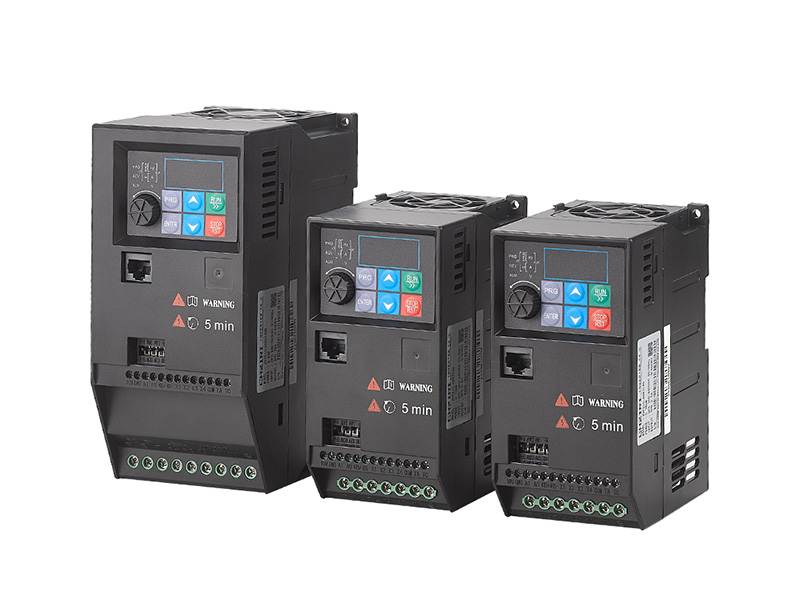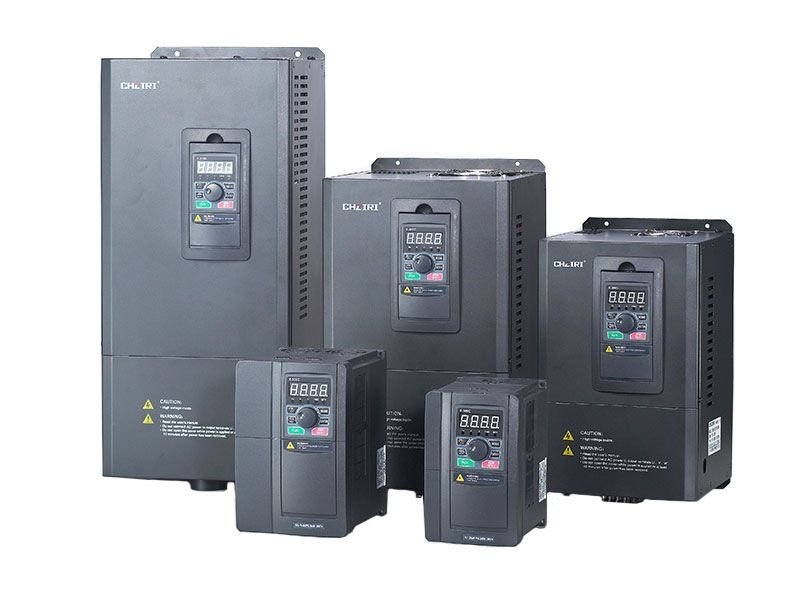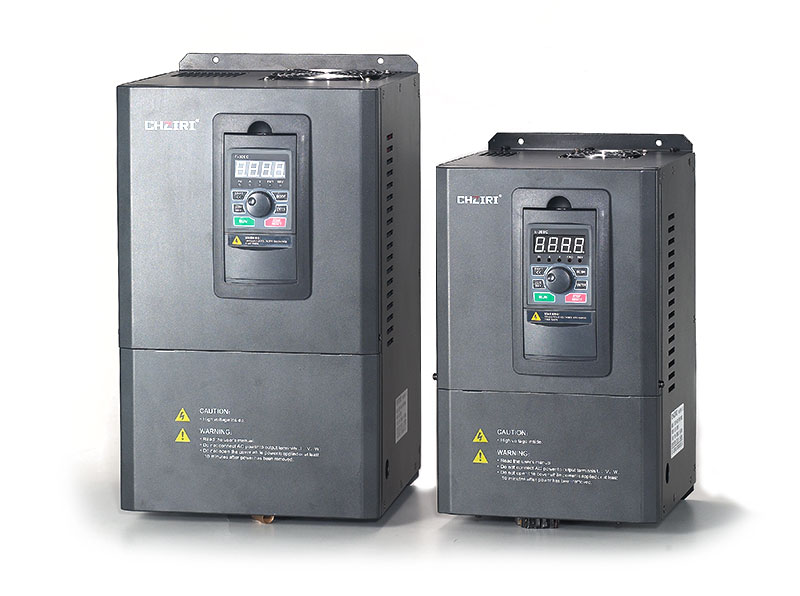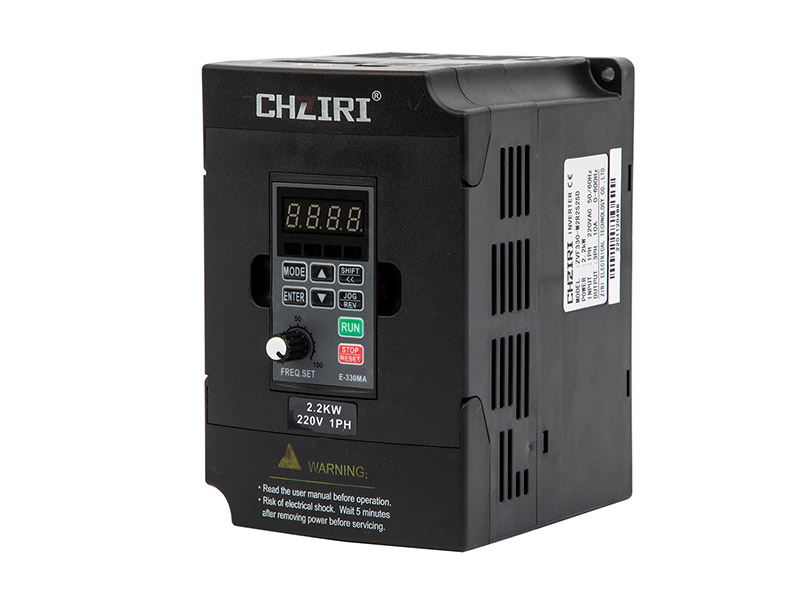What do I need to pay attention to when using and maintaining frequency converter?
Publish Time: Author: Site Editor Visit: 1580
Correct use and maintenance of the frequency converter can significantly extend its service life, enhance the reliability and stability of the equipment, and ultimately ensure the smooth progress of normal production. Here are the detailed points to pay attention to in the use and maintenance of the frequency converter:
I. Precautions for Use
1. Environmental Requirements
- The installation environment of the frequency converter should be meticulously maintained to be dry and well-ventilated. This not only helps in preventing moisture buildup but also ensures efficient heat dissipation. Direct sunlight and rain must be strictly avoided as they can cause damage to the exterior and potentially affect the internal components. The temperature range should be carefully controlled between -10℃ and +40℃. Outside this range, the performance of the frequency converter may be compromised. Additionally, the relative humidity should be no more than 90% (with no condensation). High humidity can lead to corrosion and electrical malfunctions.
- It is crucial to keep the frequency converter away from flammable and explosive materials as well as corrosive gases. Such substances pose a significant risk to the safety and proper functioning of the equipment. Installation in places with vibration and shock should also be avoided as it can cause mechanical damage and affect the electrical connections.
2. Selection and Matching
- Choosing the appropriate frequency converter model is of utmost importance. Parameters such as the motor's power, speed, and load characteristics must be carefully considered. The capacity of the frequency converter should precisely match the operating requirements of the motor to ensure optimal performance. For example, if the frequency converter is undersized for the motor, it may lead to overheating and premature failure. On the other hand, an oversized frequency converter can be inefficient and costly.
- In addition to the basic parameters, special requirements of the application scene should also be taken into account. This includes factors such as the protection level, which determines the degree of protection against dust, water, and other environmental hazards. Communication interfaces are also important, especially in modern industrial settings where integration with other systems is often required.
3. Correct Wiring
- Wiring the frequency converter correctly is essential for safe and reliable operation. Strictly following the wiring diagram provided by the manufacturer is crucial. Any deviation from the correct wiring can lead to electrical faults, short circuits, or even fire hazards. The input, output, and control lines must be connected precisely as specified to ensure proper signal transmission and power flow.
- The input power supply should precisely match the rated voltage and frequency of the frequency converter. Mismatched power supply can damage the internal components of the frequency converter and pose a safety risk. Reliable grounding is also essential to prevent electrical interference and safety accidents. Grounding provides a path for electrical faults to safely dissipate, reducing the risk of damage to the equipment and personnel.
- The connection between the motor and the frequency converter should be firm and secure. Loose connections can lead to poor contact, increased resistance, and overheating. This can result in reduced efficiency, increased power consumption, and potential damage to the motor and frequency converter. Regular inspection of the connections is necessary to ensure their integrity.
4. Operation Specification
- Before starting the frequency converter, a thorough check of the parameter settings is essential. Ensuring that the settings are correct for the specific application is crucial for proper operation. The motor and load should also be inspected to ensure they are in normal working condition. Any abnormalities in the motor or load can affect the performance of the frequency converter and may even lead to damage.
- Adhering to the operation regulations is vital for the safe and efficient operation of the frequency converter. Avoiding frequent starting and stopping and rapid speed regulation can help prevent mechanical stress on the motor and frequency converter. Frequent starts and stops can cause thermal stress and wear on the components, reducing their lifespan. Rapid speed regulation can also lead to instability and potential damage to the motor and load.
- Constant observation of the operation status indicator and display of the frequency converter is necessary to detect any abnormal situations promptly. This allows for timely 采取 of corresponding measures to prevent further damage. For example, if an overcurrent or overvoltage indication appears, immediate action should be taken to shut down the equipment and investigate the cause.
II. Maintenance Precautions
1. Cleaning and Maintenance
- Regular cleaning of the frequency converter is essential to maintain its performance and longevity. Removing surface dust and debris prevents them from entering the interior and affecting the heat dissipation and electrical performance. Dust can accumulate on the heat sinks and fans, reducing their efficiency and potentially causing overheating.
- Checking the cooling fan for proper operation is crucial. If the fan is not running normally, it should be replaced promptly. A malfunctioning fan can lead to overheating of the frequency converter, which can damage the internal components. The heat sink should also be kept clean to ensure efficient heat dissipation. Any obstructions or dirt on the heat sink can reduce its effectiveness and increase the operating temperature of the frequency converter.
2. Check Fastening
- Regular inspection of the terminals and bolts of the frequency converter is necessary to ensure their tightness. Loose terminals and bolts can lead to poor electrical connections, increased resistance, and overheating. This can result in reduced efficiency, increased power consumption, and potential damage to the equipment.
- Checking the insulation of the cable is also important. Any damage to the cable insulation can lead to electrical leakage and safety hazards. If the cable insulation is damaged, it should be replaced promptly to prevent electrical accidents.
3. Parameter Backup
- Regularly backing up the parameter settings of the frequency converter is a good practice. This helps in preventing the loss of parameters due to power outages, equipment failures, or accidental changes. In case of a problem, having a backup of the parameters can facilitate a quick restoration of the frequency converter to its previous working state.
- After parameter adjustment or troubleshooting, it is essential to back up the new parameter settings. This ensures that the changes are saved and can be easily restored if needed in the future.
4. Troubleshooting
- When the frequency converter malfunctions, the first step is to check the fault code and display information. This can provide valuable clues about the cause of the problem. By analyzing the fault code and display information, it is possible to determine the initial cause of the fault and take appropriate measures.
- Following the troubleshooting guide provided by the manufacturer is crucial for effective problem-solving. The troubleshooting guide typically provides step-by-step instructions for identifying and resolving common faults. If the problem cannot be resolved using the troubleshooting guide, it is advisable to contact professional technicians for assistance.
- During the maintenance process, strict adherence to safety operation procedures is essential to avoid electric shock and other safety accidents. This includes wearing appropriate personal protective equipment, disconnecting the power supply before performing maintenance tasks, and following proper lockout/tagout procedures.









